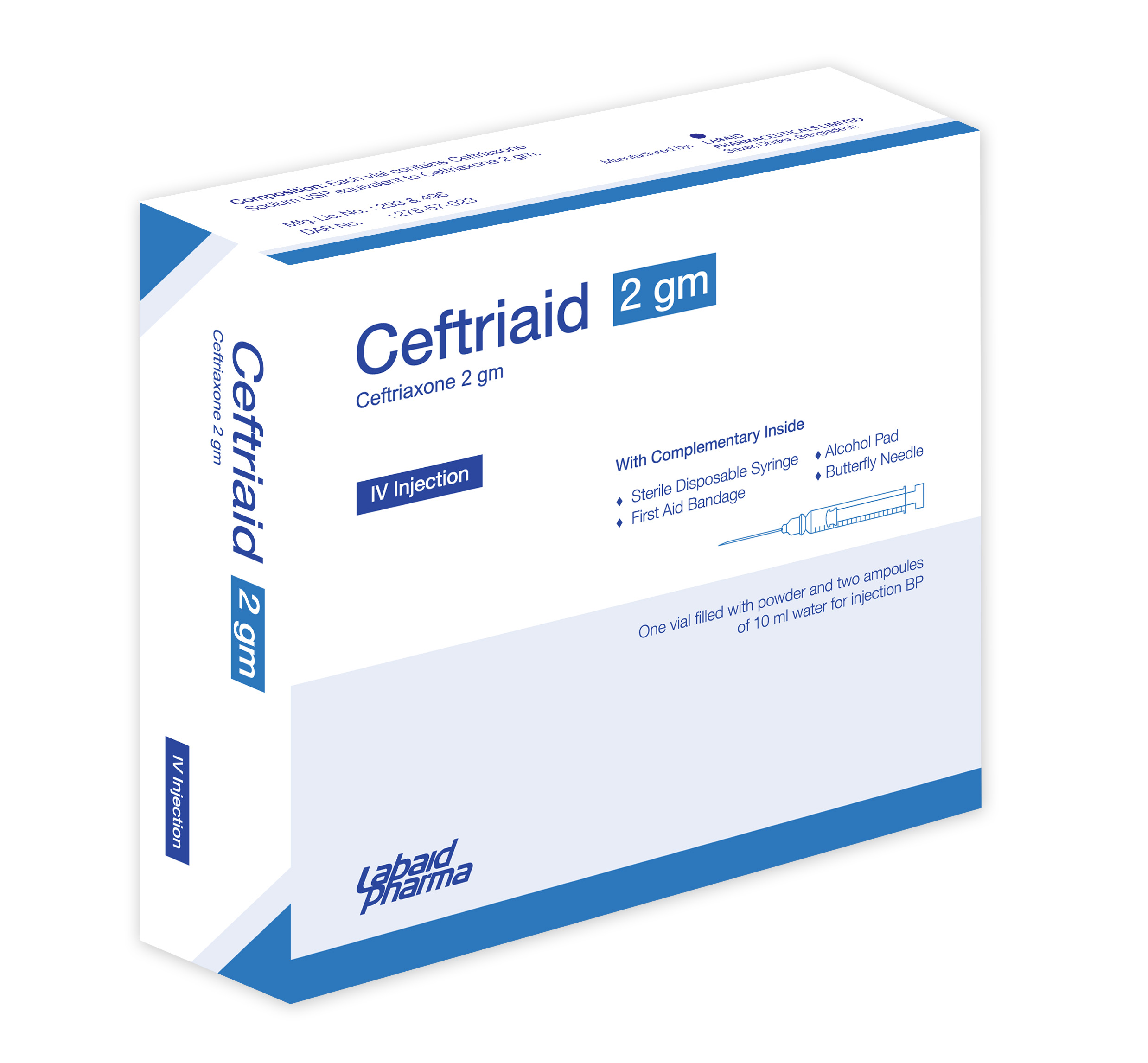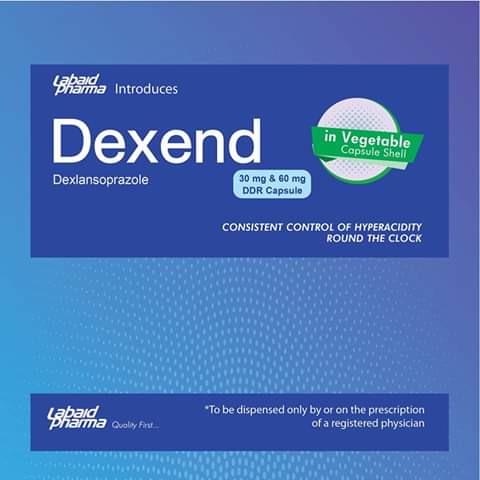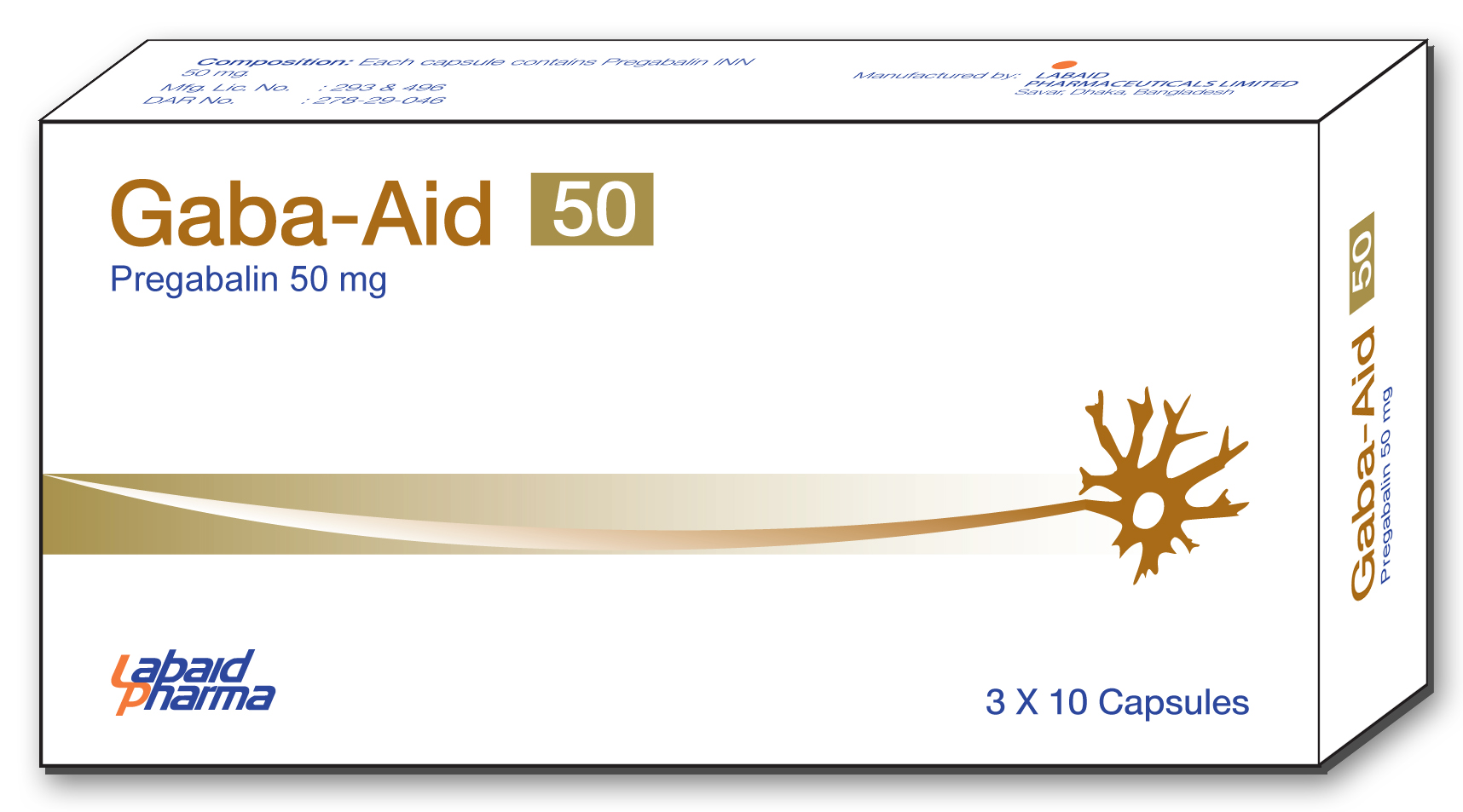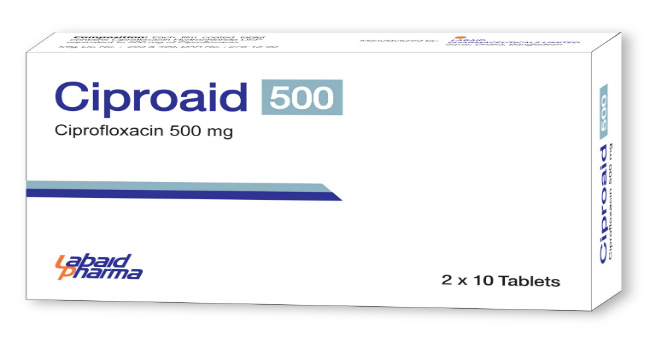abaid Pharma Bhola Team
Quality First......
| Brand Name | : | Ceftriaid 250mg, 500mg, 1g, 2g |
| Generic Name | : | Ceftriaxon |
| Price | : | BDT: 320.00 |
| Therapeutic Class | : | Antibiotic Products |
| Section | : | Antibiotics |
| Dosages | : | Ceftriaid (Ceftriaxone) can be administered either intravenously or intramuscularly. Adults: The usual adult daily dose is 1-2 g once daily (or twice daily in equally divided doses), depending on the type and severity of infection. The daily dose may be i |
| Indication | : | Ceftriaid is indicated for the treatment of the following major infections when caused by susceptible organisms: Renal and urinary tract infections, lower respiratory tract infections, particularly pneumonia, gonococcal infections, skin and soft tissue in |
Product Details
Description :
Ceftriaid (Ceftriaxone) is a third generation broad spectrum parenteral cephalosporin antibiotic. Ceftriaid interferes with the synthesis of bacterial cell wall by inhibiting transpeptidase enzyme. As a result the bacterial cell wall is weakened, the cell swells and then ruptures.
Side Effects :
Ceftriaid is generally well tolerated. A few side-effects such as 1. Gastrointestinal effects include diarrhea, nausea and vomiting, stomatitis and glossitis 2. Cutaneous reactions include rash, pruritus, urticaria, edema & erythema multiforme 3. Hematological reactions include eosinophilia, thrombocytosis, leukopenia and neutropenia 4. Hepatic reactions include elevations of SGOT or SGPT, bilirubinemia 5. CNS reactions include headache, hyperactivity, nervousness, sleep disturbances, confusion, hypertonia and dizziness were reported. Local phlebitis occurs rarely following intravenous administration but can be minimized by slow injections over 2-4 minutes.
Pregnancy: The safety of Ceftriaxone in the treatment of infections during pregnancy has not been established. Ceftriaxone should only be used during pregnancy if the likely benefit outweighs the potential risk to the fetus and/or the mother.
Lactation: Ceftriaxone is excreted in breast milk at low concentrations. Therefore, caution should be exercised when Ceftriaxone is administered to a nursing mother.
Contraindications:
Ceftriaid should not be given to patients with a history of hypersensitivity to cephalosporin antibiotics. It is contraindicated in premature infants during the first 6 weeks of life. Its safety in human pregnancy has not been established. Ceftriaxone is contraindicated in neonates if they require (or are expected to require) treatment with calcium-containing IV solutions, including continuous calcium-containing infusions such as parenteral nutrition because of the risk of precipitation of Ceftriaxone-calcium.
Precautions:
Ceftriaxone should be administered with caution to individuals with a history of gastrointestinal disease, particularly colitis.
Drug Interaction :
Potentially hazardous interactions: No impairment of renal function or increased nephrotoxicity has been observed in man after simultaneous administration of Ceftriaxone with diuretics, or with aminoglycosides. A possible disulfiram-like reaction may occur with alcohol. Other significant interactions: Ceftriaid does not interfere with the protein binding of bilirubin. Simultaneous administration of Probenecid does not alter the elimination of Ceftriaxone.
Storage :
Keep away from light, moisture and store below 250 C. Keep out of the reach children.
More Product Information





